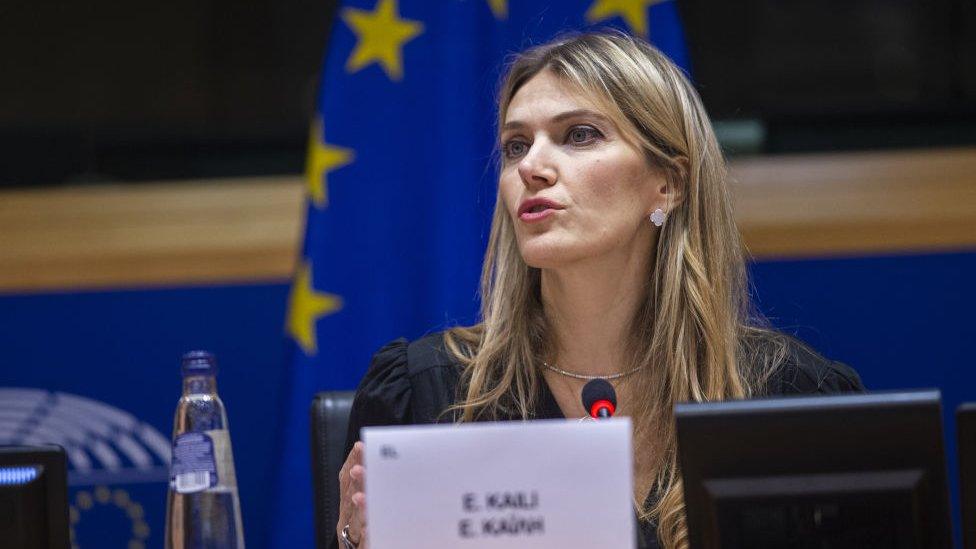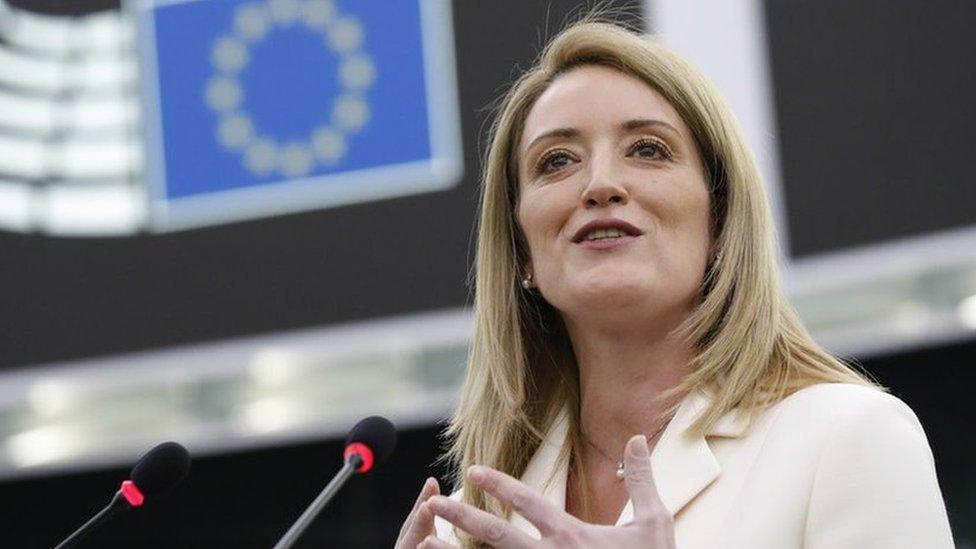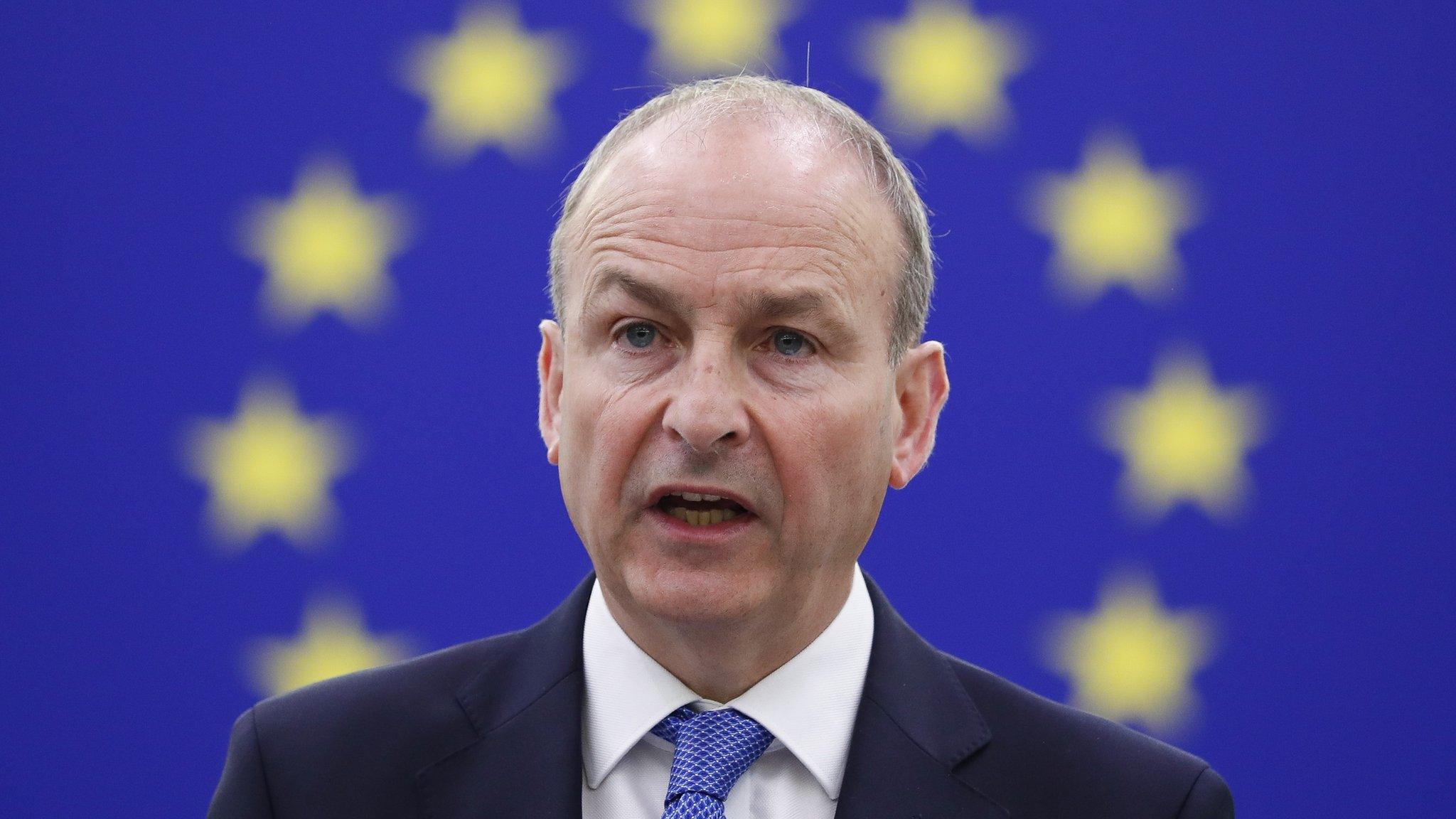Eva Kaili: Senior EU lawmaker arrested over alleged bribery by Gulf state
- Published

Eva Kaili has been suspended from the European Parliament's centre-left Socialists and Democrats bloc
European Parliament Vice President Eva Kaili has been arrested in an investigation into suspected bribery by a Gulf state.
Belgian prosecutors believe the unnamed country tried to influence the parliament with money or other gifts.
Four others were also arrested, according to the AFP news agency.
Local media suggested the Gulf state in question was Qatar - but a Qatari spokesperson said he was unaware of any investigation, and denied misconduct.
Ms Kaili, a lawmaker at the European Parliament and one of its 14 elected vice presidents, has been suspended from the parliament's Socialists and Democrats Group and expelled from the Greek centre-left Pasok party.
In a statement, the Socialists and Democrats Group said it had "zero tolerance" for corruption, and would support the investigation.
Cash worth about €600,000 ($632,000; £515,000) was seized by Belgian police in 16 searches in Brussels on Friday. Computers and mobile phones were also taken by police in order to examine their contents.
Investigators had suspected that a Gulf state had been influencing economic and political decisions of the parliament for several months, a spokesperson for the Belgian federal prosecutor said in a statement.
The state was accused of targeting aides at the parliament.
"This is done so by paying large sums of money or offering large gifts to third parties with a significant political and/or strategic position within the European Parliament," the statement said.
The wider investigation is into criminal organisation, corruption, and money laundering.
Belgian news outlets Knack and Le Soir named the Gulf state as Qatar based on information from "well-informed sources", external. The BBC has not verified these claims.
A Qatari government spokesperson told AFP: "We are not aware of any details of an investigation. Any claims of misconduct by the State of Qatar are gravely misinformed."
The country "operates in full compliance with international laws and regulations", he added.
A spokesperson for the European Parliament told Reuters that it would not comment on an ongoing investigation, but would work together with the local authorities if needed.
The day of the arrests, 9 December, was international anti-corruption day, designated by the UN and also marked by the European Parliament.
Corruption costs the EU economy between €179bn and €990bn a year, representing up to 6% of EU GDP in lost tax revenue and investment, according to a 2016 estimate cited in a document published by the European Parliament to mark the day.
Qatar has repeatedly been accused of corruption, including in its bid to host the 2022 football World Cup. The country denied the allegations and was cleared of corruption by Fifa.
Related topics
- Published18 January 2022

- Published8 June 2022

- Published6 July 2022
